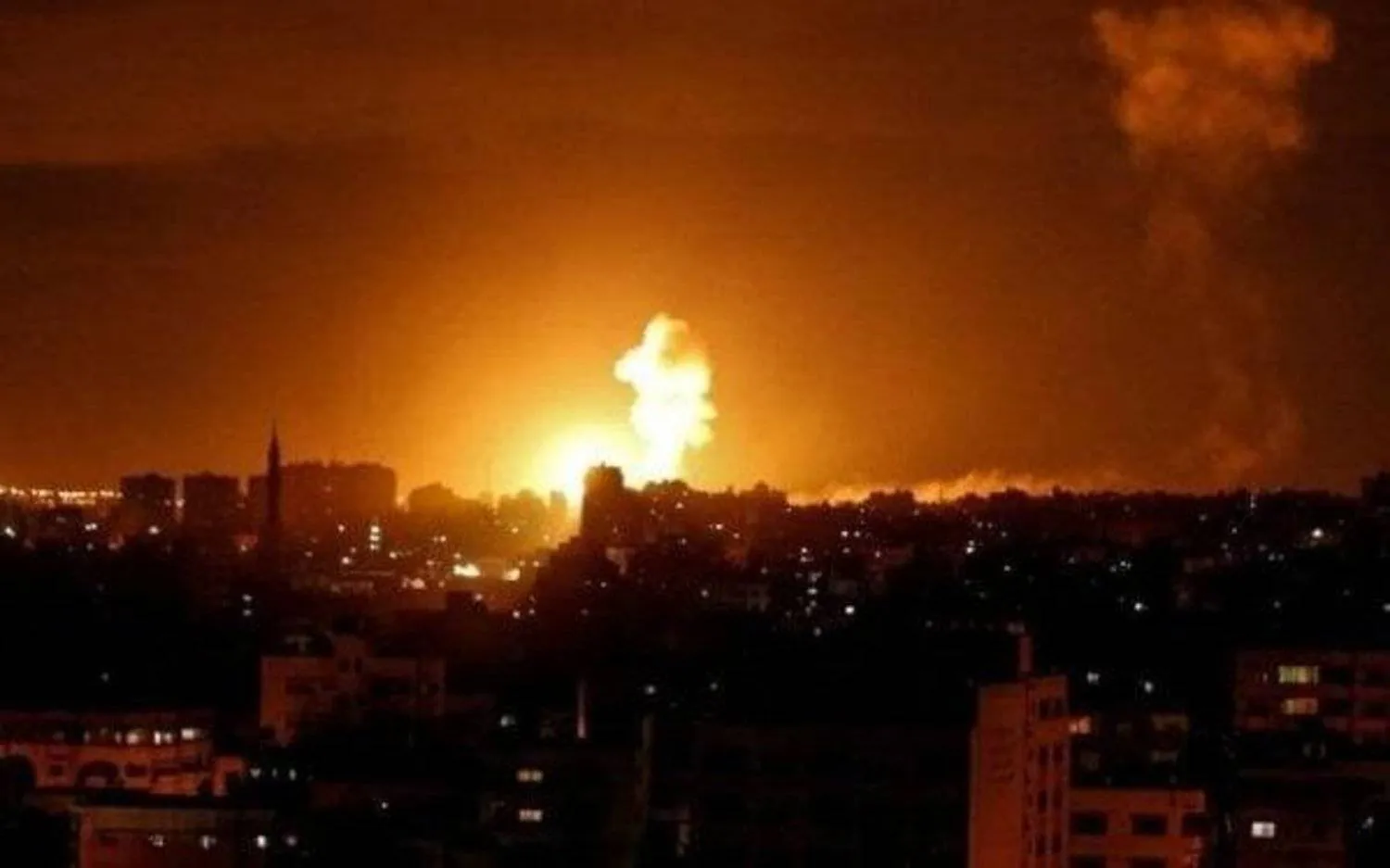A military training site of an armed faction active in Syria came under attack by an "unknown source," killing nine members and wounding dozens of different nationalities, according to the Syrian Observatory for Human Rights (SOHR).
The incident unfolded a few hours after a group calling itself the "Islamic Resistance in Iraq" claimed responsibility for an attack on the Harir base in Erbil, situated in Iraq's Kurdistan region.
The Harir base hosts US forces as part of the mission of the International Coalition to Combat ISIS.
The Observatory said raids, which targeted the Syrian-Iraqi border area in al-Bukamal, targeted training sites, noting that several sites were comprehensively targeted at the same time.
SOHR suggested that Israel may be behind the recent attack on al-Bukamal on the Iraqi-Syrian border.
The US forces did not claim responsibility for the operation, as in previous similar operations.
Meanwhile, Hezbollah announced the death of four of its members, as some news reports claimed they were killed along with others following a US raid on the Syrian-Iraqi border.
Various news websites reported that the four Hezbollah members were killed on the Syrian-Iraqi border as a result of air strikes presumably conducted by unidentified aircraft, suspected to be of US origin.
Two members of an Iraqi faction told the Associated Press that three air strikes on eastern Syria, near a strategic border crossing with Iraq, resulted in the deaths of six Iran-backed fighters.
Furthermore, field sources told Asharq Al-Awsat that several Iraqi fighters may have been injured during the attack at a joint operational base for Iraqi and Lebanese groups.
Iraqi armed groups are active in that region, including the Hezbollah Brigades and the Harakat al-Nujaba, which have been carrying out attacks against several US bases in Iraq and Syria for months.
- Al-Harir once again
AP reported that the raids came hours after the Islamic Resistance in Iraq announced an attack on the al-Harir military facility in Erbil in northern Iraq.
The US did not comment on the attack, although it announced that similar raids were planned against sites of Iranian-backed groups after an escalation in attacks over the past two months.
Iraqi factions claimed responsibility for targeting the US "Kharab al-Jir" base in northeastern Syria.
The Islamic Resistance in Iraq said they bombed the base with a missile salvo in retaliation for Israeli military activities in the Gaza Strip since Oct. 7.
The group announced last Thursday that it had bombed "two Israeli targets inside Iraqi and Syrian territory in two separate operations."
Since the escalation of militia attacks in Iraq, US forces resorted to quick response by targeting sites related to planning or implementing the attacks to deter these groups.
Sources believe the US administration no longer links this issue with the Iraqi government due to the political complications that the Prime Minister faces with the ruling coalition that includes a range of political forces linked to Iran.
According to information obtained by Asharq Al-Awsat from US diplomats and Iraqi officials last month, the US forces will move to "direct and rapid response" to the factions' attacks after neglecting the "political considerations" it had placed on the government of Prime Minister Mohammad Shia al-Sudani aiming to "maintain stability."
- Israeli attack
The Syrian Ministry of Defense announced on Saturday that Israel targeted several points in south Aleppo.
The statement stated that Israel carried out "an aerial aggression from the direction of the Mediterranean towards the west of Latakia, targeting several points south of the city of Aleppo."
It quoted a military source as saying the Israeli attack resulted in some material losses, but the Observatory reported that the bombing of the Aleppo International Airport area killed one person and injured seven others.
SOHR said the Israeli missiles targeted farms between the villages of al-Dhahabia and Sheikh Saeed in the al-Nairab Military Airport area, which contains warehouses and headquarters for Iranian militias.
A missile also fell in the area of Aleppo International Airport and al-Nairab Military Airport without causing damage to the airport. Six explosions sounded in the area.
Two members of a group affiliated with the "Front for the Liberation of the Golan," working with the Lebanese Hezbollah, were killed in an Israeli ground bombardment on Friday, targeting the Qurs al-Nafal Hill Company in the Quneitra countryside.
It came in response to the firing of two missiles toward the occupied Syrian Golan from inside Syrian territory.
The Observatory indicated that the Front launched two missiles from Syrian territory towards the occupied Golan, coinciding with a significant alert by regime forces and militias adjacent to the occupied Golan in the countryside of Daraa and Quneitra.
Israel responded by bombing sites in Syria, targeting Qars al-Nafal hill and the vicinity of Hadar in the Quneitra countryside.
"Following the report regarding sirens sounding in northern Israel, a short while ago two launches that were identified crossing from Syria fell in an open area," the army said, according to Agence France Presse.
The Israeli army confirmed to AFP that the projectiles were rockets but did not say exactly where they fell.
Israel occupied parts of the Golan in the June 1967 war and announced its annexation to its territory in 1981, in a move unrecognized by the UN.
On Thursday, Israeli bombing targeted areas in Damascus and southern Syria, according to the Syrian Ministry of Defense and official media.
Israel rarely comments on individual strikes targeting Syria, but it has repeatedly said it will not allow archenemy Iran, which backs President Bashar al-Assad's government, to expand its presence there.
Israel launched hundreds of airstrikes on its northern neighbor since Syria's civil war began in 2011, primarily targeting Iran-backed forces, including Hezbollah fighters as well as Syrian army positions.
Israel intensified its attacks since the start of the war between it and Hamas in Oct. 7 in light of escalating tensions in the Middle East.









